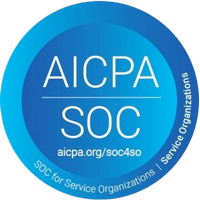What is an Employee Survey?
An employee survey is a tool that employers can use to measure workers’ satisfaction, identify problems, or predict turnover rates. One of the benefits of employee surveys is that they are endlessly customizable. You can utilize them in different ways to understand different aspects of your employees and company.
What Are Some of the Benefits of Employee Surveys?
In today’s fast-paced healthcare environment, it can be challenging to stay abreast of staff’s evolving needs. But that’s where employee surveys come in. The ability to understand and respond to these needs is just one of the major benefits of employee surveys.
In a large business, it can be hard to get one-on-one feedback from everyone. Informal check-ins are important, but it isn’t always easy to identify trends in conversations. Surveys can help you see these trends more clearly. They can offer employees a chance to freely express how they feel about management, and speak about concerns and suggestions in a confidential channel.
Remember, a survey is just a beginning. It’s important to take action from what you’ve learned.
Employee Survey Best Practices
Determine Your Goals
There are an endless number of questions you could ask your staff. Narrow it down by sticking to a clear goal. What do you want to learn? What questions would give you the clearest answers? Adhering to this goal will help you choose the best employee survey questions. Make sure your questions are neutral, and not directing the employees towards any specific answers.
Know Your Audience
One of the benefits of employee surveys is that you can intentionally target exactly who you’d like to gather information from. Is this survey for nurses alone? The entire healthcare staff? New hires? Remember to keep your audience in mind when choosing and crafting questions.
Use Automation
If you have surveys that will need to be completed repeatedly, like questionnaires for new hires or candidates, automation can be an important time-saver. Automation tools can send out survey links and gather responses in a readable format. For more information on how automation can save time in hiring, check out our new e-book.
Prioritize Confidentiality
Anonymity, or the option of anonymity, can increase the benefits of employee surveys. Even in the most supportive work environments, it can be hard to give honest feedback. Anonymous surveys can help employees and candidates freely express themselves. Having an encrypted platform can also add an additional layer of comfort. Surveys need to come from someone that employees really feel comfortable with. Nurturing your employee’s trust in HR will help them feel comfortable being honest in surveys.
Keep it Short
Surveys that take longer than 7-8 minutes to complete have a 20% bounce rate. Make sure your surveys are short and sweet so that employees finish them without losing interest. Also, consider adding incentives for employees to complete the surveys, such as a raffle for a free lunch, etc.
Consider Pulse Surveys
A pulse survey is a short survey that’s sent out more frequently. These short surveys can help you measure a variable as it changes over time.
You can craft pulse survey questions that correspond to your goals. Say you’re interested in understanding employee workplace satisfaction. Consider asking questions like “do you think you have a good work-life balance in your current position?” If you’re interested in strengthening your company culture, try asking something like “how strongly do you feel connected to the company values and mission?”
Usually, pulse surveys are quantitative, not qualitative. Since these go out to employees more frequently, make them easy to answer.
Types of Employee Surveys (and When to Use Them)
Employee Engagement Survey
This employee survey measures whether employees feel valued in your company, and how invested they are in their jobs. There are many factors involved with employee engagement. Therefore, it’s especially important to set goals before using this type of survey.
Candidate Feedback Survey
A candidate feedback survey is intended for everyone who goes through your hiring process. This survey should be crafted for both new employees and candidates you didn’t end up hiring. Use this to evaluate candidate experience and optimize your hiring process.
Onboarding Survey
This is a survey that should go out to new hires at the end of the onboarding process. Respondents can let you know if they had issues with submitting paperwork, navigating your platform, or getting questions answered. Use this kind of survey if you’re looking to streamline onboarding.
Exit Survey
While in-person exit interviews are always a good idea, exit surveys help departing employees express their feelings. The additional anonymity of a survey can encourage honesty. This feedback can be crucial in your efforts to increase employee retention.
Employee Wellness Survey
An employee wellness survey can help you get the temperature of company culture and your employees’ mental health. Use this survey to monitor for burnout and ensure your employees feel valued and heard.
Professional Development Survey
A lack of opportunity for growth is one of the top five stressors in the workplace. A professional development survey can help you get an idea of how your employees want to grow. This can help you gauge which professional development initiatives are worth your staff’s time.
Custom Survey
Is there something specific you want to measure that doesn’t fall into any of the categories we mentioned? You can make a custom survey, uniquely suited to your needs.
Better Hiring with Apploi
Apploi can help you tailor your hiring and onboarding process based on your employee survey feedback. Interested in learning more about how you can recruit, hire, and onboard healthcare staff quickly? Contact us today for a free demo of our end-to-end talent management solution.





